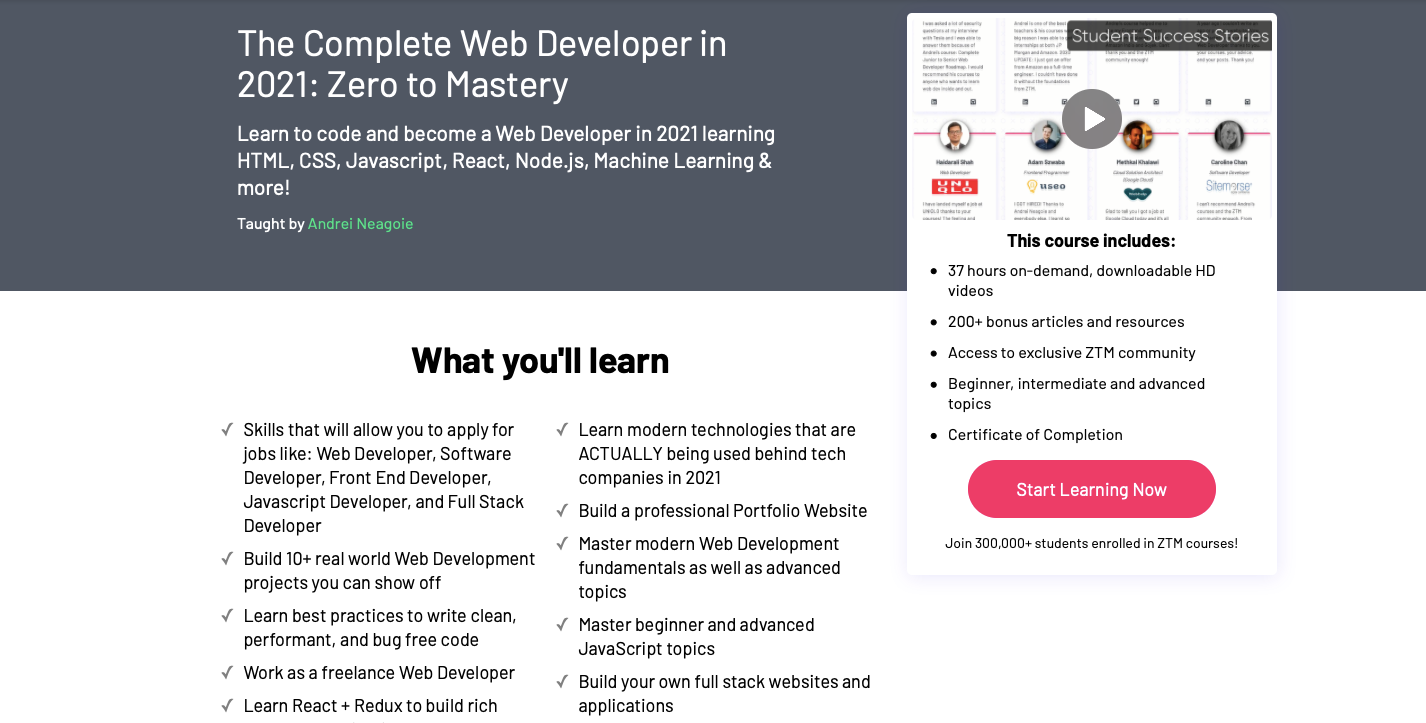In this interview a CTO, Jason Riedel, shares tips on learning to code, what he looks for in a developer and how you could improve your chance in getting hired without a CS degree.
Hey, so can you introduce yourself?
Hi there, I am Jason Riedel and I am the Co-Founder and CTO @ Aspireship, where we train people for jobs in high growth technology companies, today we focus on SaaS Sales, but we plan to expand very soon. I did not go to college by choice because I always found that I knew how to teach myself things better than school and I am someone who is committed to continuous learning and self-improvement.
My background is in Internet companies, in the early days doing a lot with Dial Up, DSL and Cable Modem ISP’s and then I worked at PayPal for a very long time, twice and Symantec for a brief stint, my most recent experience there was Public Cloud Engineering leadership i.e. Director/Architect. I live in Cave Creek, Arizona about 20 minutes north of Scottsdale.
Do you have tips for people who want to learn to code without doing a degree?
Absolutely, this is something I am extremely passionate about. The first thing you should do is learn how YOU LEARN. Everyone learns different and also learning specific subjects can have different approaches. When I learn programming languages my rules are 1) find a good book 2) find a good course 3) build a project, but make sure it’s a project where someone gives you feedback that keeps you coming back to it i.e. a customer or something like one.
Recall is the ultimate learning for coding, because until you try to improve your code or refactor it, you don’t learn it well just writing it once and you don’t have that understanding that you get when you keep working on the same code base over time.
What do you look for in developers when you are hiring now?
First off, I definitely do not look for degrees. Credentials are fine like certifications, but I look for is the person a learner, are they a cultural fit for the company i.e. would their passion be applicable to what we do, which means I have to first know what they are passionate about and I look for all this above skill. Skill or aptitude testing is the last thing I do, because if they can learn, then they can learn anything, but what I really want is someone humble, curious and passionate.
So I look to see if they are a learner whether they are learning about coding or history or philosophy and I dig into how they learn about the things they are passionate about. At the end when I do coding interviews, it's a combination of having them do “take home/open book” projects and asking them a series of connected technical questions for depth, but I only do real-time pair programming or whiteboard exercise if I have doubts about the candidate, which usually doesn’t happen.
What does a typical day as a CTO look like for you?
Because I am 37 and had a lot of success in my career prior to becoming a CTO, I had a very good idea of what the trade offs would be leaving the larger companies to start my own. I have been very pleased with being able to just solve problems & write code, and have meetings that matter rather than ones that have very limited value filling up my calendar. That efficiency of impact has always been very important to me, and being a CTO allows me to design that outcome for not just myself, but our entire company and I am very grateful to be able to do that.
My day as a CTO is a combination of writing code and business strategy. Up until this point I have been the only one writing code for Aspireship and this is because the business had a greater necessity for hiring in other bottlenecked areas first. However, we have just now reached the point (which is a great point to reach) where engineering is the bottleneck and are now hiring engineers, thus hiring and management will be added to my daily responsibilities moving forward.
How did you learn coding?
When I was 12 in 1995 I was over a friend's house who had just learned about web pages and was trying to build one on angelfire or geocities. I forget which hosting provider...anyway, while watching him I saw him do a ‘view source’ and I was hooked. So I went home and created a web page about a girl I had a crush on with all these animated gifs and backgrounds...that didn’t go over as well as I would like as you could imagine, but I did learn how to build web pages using HTML.
But after that I started to learn C because I wanted to be a hacker, and then PHP around 16 for a ticketing system at work, and finally Perl and Perl is arguably where I got pretty decent at coding. Again I was using this all for work. So you could say I taught myself to code and then tried to find any way I could to use it, but it wasn’t until I was already working in the field at 16 that I started really getting better at coding. I have not done any coding bootcamps, they were not a thing back in the day but I really want to! :-)
How did you get your first developer job?
Actually, I have never in my career held the title “Developer”. I have been an engineer/architect of some kind that writes code my entire career, but it was never my full-time job to only write code. That was one of the attractions for me personally becoming a CTO, was I knew I would get to write code mostly in the early days, and that was something very important to me, because I have always loved to code, but my jobs at most consisted at most of 40% coding time...now as a CTO it’s closer to 80-90% which is great!
I will say for the readers from a hiring perspective, the way I do my interviews is typically more of sample coding projects and a show and you tell me approach rather than a whiteboard or pair programming exercise. Portfolios are always a bonus, but you want to be sure the person has actually done the work, which is hard to certify in a repo.
What are your career goals for the future?
For me, probably not unlike many, I appreciate freedom with my time. I would like the ability to spend my time how I choose. What I want to spend my time on is building things that help others. At Aspireship we help people change their future and obtain higher paying jobs. We are in the early days of Aspireship with still a long way to go to achieve our vision.
I would be doing something similar to help others achieve their dreams and goals or just to better their life in some way. That is my why, that is my purpose, helping others and ever since I figured this out a few years ago, that is all I have wanted to do with my life.



